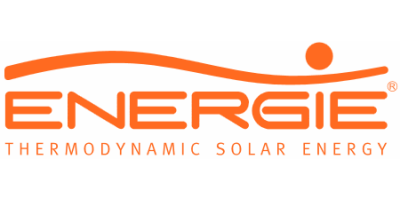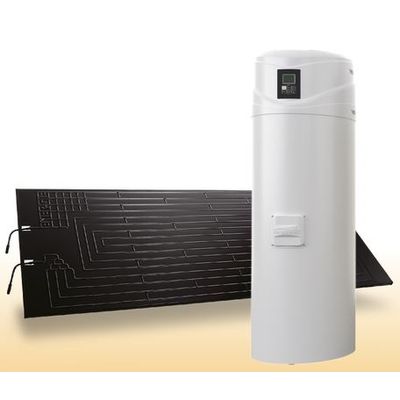

Energie Energia Solar Termodinâmica
- Home
- Companies
- Energie Energia Solar Termodinâmica
- Products
- Energie - Model Ecotop - Solar Water ...

Energie - Model Ecotop - Solar Water Heater
Probably the most developed solar water heater in the world. Available with capacities of 100 to 300 litres. Versions with one solar panel. With or without supplementary coil. Cylinder available in stainless steel.
Most popular related searches
solar water heating
solar water
thermodynamic solar
heat pump
energy consumption
solar panel
solar thermal collector
solar thermal system
solar thermal
solar collector
- HEAT IS CAPTURED UNDER THE FORM OF SOLAR RADITION, ENVIRONMENTAL TEMPERATURE, RAIN, WIND AND EVEN SNOW
- THE HEAT PRODUCED ON COLDER DAYS, EVEN AT NIGHT IS SUFFICIENT TO ATTAIN THE WATER TEMPERATURE DESIRED
- THE SOLAR PANEL IS LIGHT, DISCREET AND VERSATILE IN TERMS OF WHERE TO PUT IT
- OUTSIDE CYLINDER CONDENSER (NO CONTACT WITH WATER)
- 3RD GENERATION THERMODYNAMIC SOLAR ENERGY
- HOT WATER UP TO 55ºC AVAILABLE 24h PER DAY
- ALMOST NON-EXISTENT MAINTENANCE
- THE ENERGY CONSUMPTION OF THE EQUIPMENT IS REDUCED DUE TO A SUPER EFFICIENT COMPRESSOR
- NO DEFROST CYCLE
OPERATING PRINCIPLE
EQUIPMENT
Without ducts
Without ventilators
Without defrost cycles that use up energy
Super efficient compressor with low energy consumption
No need to install support equipment
Hot water guaranteed, available day and night, hail, rain, wind or shine up to 55ºC
SOLAR PANEL
Captures heat regardless of climate.
Primary circuit does not need to dissipate excess heat on hotter days.
Easy integration with architecture, versatile, no visual impact.
EQUIPMENT
Without ducts
Without ventilators
Without defrost cycles that use up energy
Super efficient compressor with low energy consumption
No need to install support equipment
Hot water guaranteed, available day and night, hail, rain, wind or shine up to 55ºC
SOLAR PANEL
Captures heat regardless of climate.
Primary circuit does not need to dissipate excess heat on hotter days.
Easy integration with architecture, versatile, no visual impact.
The Thermodynamics Solar System joins two incomplete technologies, the heat pump and the solar thermal collector.
Heat pumps are quite efficient equipment but the heat they produce from their renewable component varies only according to changes in the temperature of the environment.
Heat pumps are quite efficient equipment but the heat they produce from their renewable component varies only according to changes in the temperature of the environment.
Thermal solar collectors are the best source of heat on hot and sunny days but they are totally inefficient whenever there is no sun.
The Thermodynamic Solar Technology manages to surpass the limitations of both the heat pump and solar collector technologies.
Through the cooling liquid (R134a or R407c) which covers a closed circuit, the liquid goes into the solar panel and suffers the action of sun, rain, wind, environment temperature and other climate factors. During this process the liquid gains heat in a more favourable way than a heat pump. After this stage, the heat is transferred to an exchanger with the help of a small compressor, which heats the water. The liquid cools down and the circuit is repeated.As the fluid has a boiling temperature.
Through the cooling liquid (R134a or R407c) which covers a closed circuit, the liquid goes into the solar panel and suffers the action of sun, rain, wind, environment temperature and other climate factors. During this process the liquid gains heat in a more favourable way than a heat pump. After this stage, the heat is transferred to an exchanger with the help of a small compressor, which heats the water. The liquid cools down and the circuit is repeated.As the fluid has a boiling temperature.
Of approximately -30ºC, the system works even when there is no sun and it even works at night, providing hot water at 55ºC, day and night, hail, rain, wind or shine, unlike the traditional solar thermal system.
The energy consumption of the system is basically the same as a fridge compressor that makes the liquid circulate. There are no ventilators that help the evaporation process, or defrost cycles, which imply unnecessary energy consumption, unlike what happens with heat pumps.
